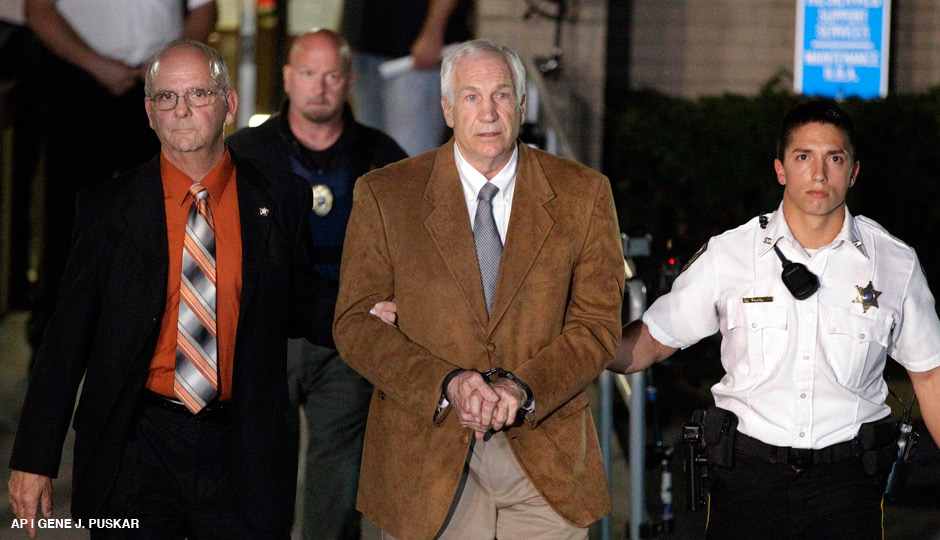Some Trustees Say Penn State Bullied by NCAA

2012 AP Photo
The Centre Daily Times today reports that some Penn State trustees want the university to challenge the consent decree it signed with the NCAA, accepting guilt and punishment in the wake of the Jerry Sandusky scandal.
Those trustees say that NCAA emails — revealed in the ongoing lawsuit over whether the $60 million fine levied in the case will stay in Pennsylvania — show that the organization “bullied” Penn State into accepting the decree.
Here’s how the Washington Post‘s Sally Jenkins characterized those emails:
On the heels of the Gurley fiasco came a series of subpoenaed e-mails in a Penn State court case showing that the NCAA “bluffed” the school into forking over a $60 million fine in the wake of the Jerry Sandusky child molestation case. NCAA officials acknowledged in the e-mails that they didn’t have the right to levy the fine, but they knew the school was so wounded and embarrassed by Sandusky it could be intimidated into accepting the punishment. Now, this comes perilously close to blackmail.
The Centre Daily Times quotes former trustee Joel Myers.
“(Former Penn State president) Rod Erickson had previously asserted that the NCAA threatened the student football program with the ‘death penalty’ and he had to take the best of the bad choices. The Penn State lawyer said ‘it was crammed down,’ ” he said in an email Tuesday. “Now it has come out that NCAA officials may have acted in deceptive ways, using not only extortionate-like threats, but what seems to be bullying, bluster, and bluffing and outright lies to exact an agreement from a new Penn State president reeling from being thrust into the middle of the Sandusky crisis.”
He called the NCAA actions unprofessional and “perhaps illegal,” characterizing it as a protection racket that cheated student athletes.
“I urge the Board to ask both the State Attorney General of Pennsylvania and the appropriate federal authorities to look into their actions to assess whether any criminal laws were broken,” Myers said. “Whether the board chooses to reject the consent decree or not, it certainly has a fiduciary duty to consider damages against the NCAA, even if no new revelations come out.”
The resolution to challenge the consent decree will reportedly come from the group of Trustees led by Anthony Lubrano. Lubrano recently proposed challenging the Freeh Report that was the basis for the consent decree, but the broader board decided not to revisit that issue.


